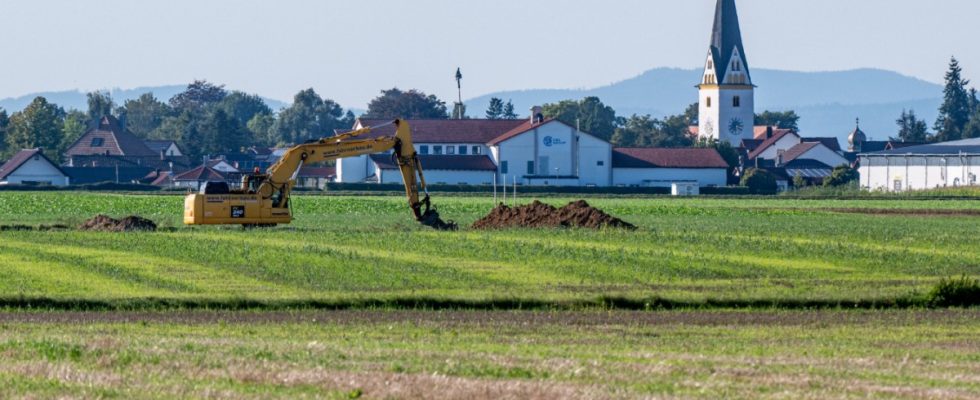The first construction work for the planned BMW plant in the Lower Bavarian communities of Straßkirchen and Irlbach in the Straubing-Bogen district will begin immediately after the Easter holidays. The responsible district office in Straubing has approved a corresponding application for an early start by the car company.
As a spokesman for the district office said when asked SZ confirmed, the decision was issued on Wednesday, meaning that work on the site could theoretically begin “immediately.” Previously had BR24 reported about it. Accordingly, it should start after Easter; the approval that has now been granted concerns, for example, the removal of earth from the construction site or preparations for setting up the large construction site.
The actual approval for the factory construction is still pending; given the numerous objections, the time horizon is unlikely to be in the short term. The advance approval is not an unusual step; according to the spokesman, it is “completely independent” of the project itself.
If BMW is surprisingly not allowed to build the new plant, the measures it has already taken could be reversed at the company’s expense.
The car company is building an assembly plant for batteries for electric cars on a 105-hectare site in the municipalities of Straßkirchen and Irlbach. These high-voltage storage units, according to plans for 600,000 units per year from 2026 onwards, will then be installed in BMW products at the Regensburg and Dingolfing plants, among others. In the first phase, around 60 hectares are to be developed; there are expansion scenarios for the remaining 45 hectares; At the same time, BMW has secured the right of first refusal for a further 36 hectares of arable land.
Since the plans for the plant became public at the beginning of 2023, they have also been controversial. For example, there was a referendum initiated by critics, but the majority voted in favor of the work.
In September last year, voters in Straßkirchen, which was mainly affected, cleared the way for the car manufacturer’s new battery plant in their community with a three-quarters majority. 24.7 percent rejected it. A citizens’ initiative against the battery factory, which the “Livable Gäuboden” initiative had put to the vote at the same time, only received 29.6 percent yes votes and 70.4 percent of those who voted rejected it. The voter turnout was 76.9 percent. The Straßkirchen local council had previously clearly supported the settlement, which is expected to create up to 3,200 jobs.
In BMW’s eyes, the clear vote showed “that many citizens are in favor of investments in future-friendly technologies and jobs.” At the same time, one can see “that with good solutions, a transparent process and open dialogue, reliable decisions can be made for a common future.”
At that time there was joy right up to the state government. “The result is a good signal for the region and Bavaria as a business location,” wrote Prime Minister Markus Söder (CSU) on Platform X. Economics Minister Hubert Aiwanger (FW) thanked the citizens for “making the right choice.” This means that Bavaria remains “a car-friendly country”.
Opponents are concerned about the increasing consumption of land and the Gäu soil must be preserved as extremely fertile soil for the production of food. In addition, the small communities would be overwhelmed by the project, for example because of the expected influx and traffic. The Federal Nature Conservation Union, which approves of such a battery plant, had accused the state government of not looking for the best possible location: “With the help of Economics Minister Aiwanger, the red carpet was rolled out for BMW to concrete the best arable land.”
BMW is supporting the project with information measures in the region. It should be loud BR24– Report now on the initial work on the site in a direct mail item. It says the earthworks will last until late summer. Special routes have been agreed with logistics companies in order to distribute the traffic load as evenly as possible, for example on the journey to regional gravel pits.
Measures are intended to prevent meadow-nesting birds such as skylarks and lapwings from building nests in the area; there are compensation areas. According to the report, BMW also explains in the information letter that it wants to connect the new plant to rail transport. There are already discussions with Infra GO AG (formerly DB Netz), the municipalities of Straßkirchen and Irlbach and property owners.

